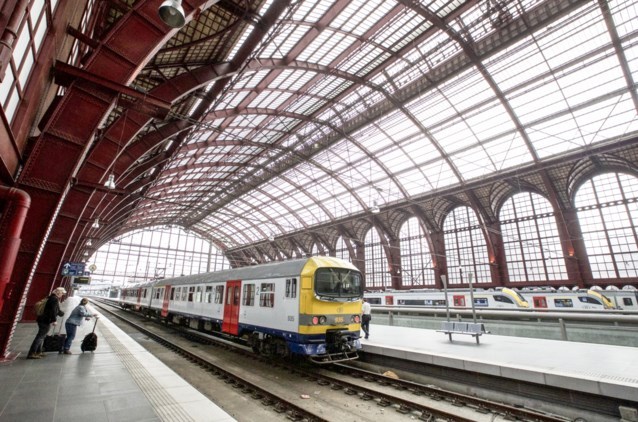The federal parliament has just adopted a 10-point resolution asking the federal government to impose several obligations on the National Railway Company of Belgium (SNCB), particularly concerning the boarding of bicycles on the train, according to Luc Goffinet of Belgium’s GRACQ.
GRACQ, or Groupe de Recherche et d’Action des Cyclistes Quotidiens, is an organisation representing cyclists in Francophone Belgium.
“The Chamber's intention is clearly to make the train/bike combination more efficient and attractive,” Goffinet wrote.
To that end, the Parliament is asking the Federal Government to:
- Impose clear targets for the minimum number of bicycle spaces on each rail link in the next management contract with the SNCB;
- Require the various railway companies to provide at least 8 bicycle spaces on all new and renovated trains on each national and international route;
- Require clear objectives to be included in the next management contract of the SNCB concerning the correct information of passengers carrying a bicycle;
- State in the next management contract with the SNCB that the transport of passengers with a bicycle is a public service mission that must be available at an attractive price;
- Suggest that the SNCB develop a reservation system so that passengers who buy a “bicycle supplement” ticket can be sure of having a space for their bicycle
- Call on SNCB to make the use of bicycles on the train more attractive by introducing a more favourable and variable fare which stimulates the use of bicycles during off-peak hours and which depends on the distance of the train journey;
- Ask SNCB to ensure that each station and stop has a sufficient number of good-quality bicycle parking spaces, if possible secured, and that they include facilities for larger bicycles (cargo bikes, bikes with trailers, etc.);
- Ask SNCB to actively promote the deployment of a shared bike offer in each station, in collaboration with other partners;
- Call on SNCB to set up a cycling unit with a manager, responsible for supervising the railway entity's train/bike policy and for consulting representative organisations and experts on cycling policy;
- Ask the SNCB to make the platforms accessible to cyclists in all its stations
Most of the objectives on the list are clarified to be in the context of the conclusion of the next management contract.
“We are pleased to find in this text the main part of our demands to the SNCB,” Goffinet said. “In 2020, European cycling associations led a campaign to support the European Parliament's desire to impose eight bicycle spaces on every train in Europe.”
“France recently included this obligation for the SNCF in its law on the orientation of mobility. Belgium should soon follow suit, by including this obligation in the next management contract for the SNCB.”
Related News
- Should you wear a mask when cycling? Some experts say yes
- Training helped reduce fear and stress for Brussels cyclists
GRACQ says that the price of bicycle tickets should be modulated according to distance and off-peak times in order to avoid a fixed price that ends up more expensive than the cost of the journey.
But they also want clearer information made available to people travelling by train with a bicycle, including details on which trains to take with a tandem bike, availability of bike parking spaces, ground access for cyclists, and where the bicycle compartment can be found.
“The reservation system for bicycles is undoubtedly the most delicate point to be studied,” added Goffinet. “Is it desirable when there is no greater demand than supply? Would it be compulsory or advisable (with priority given to those who have booked)? At what cost?”
“All of this needs to be seriously considered before launching a system that has advantages, but also disadvantages, as the Swiss cycling associations have pointed out to the SBB.”
When it comes to bicycle parking, they noted that it isn’t just a matter of the number of spaces, but also security.
“Too many bicycles are still stolen in the vicinity of stations,” said Goffinet.
Lastly, GRACQ was excited to hear about the creation of a real cycling unit with SNCB, which the Belgian railway company will have to consult when creating policy involving bike use.
“This is all the more important as a new SNCB bicycle/train strategy should be in place by the summer,” Goffinet said. “It has everything to gain from a formal consultation of Belgian cycling associations, which avoids many disappointments when decisions are discovered, sometimes too late.”
The resolution is not a binding law, but GRACQ hopes the Federal Minister for Mobility will “quickly translate all this into binding contractual terms for the SNCB.”

